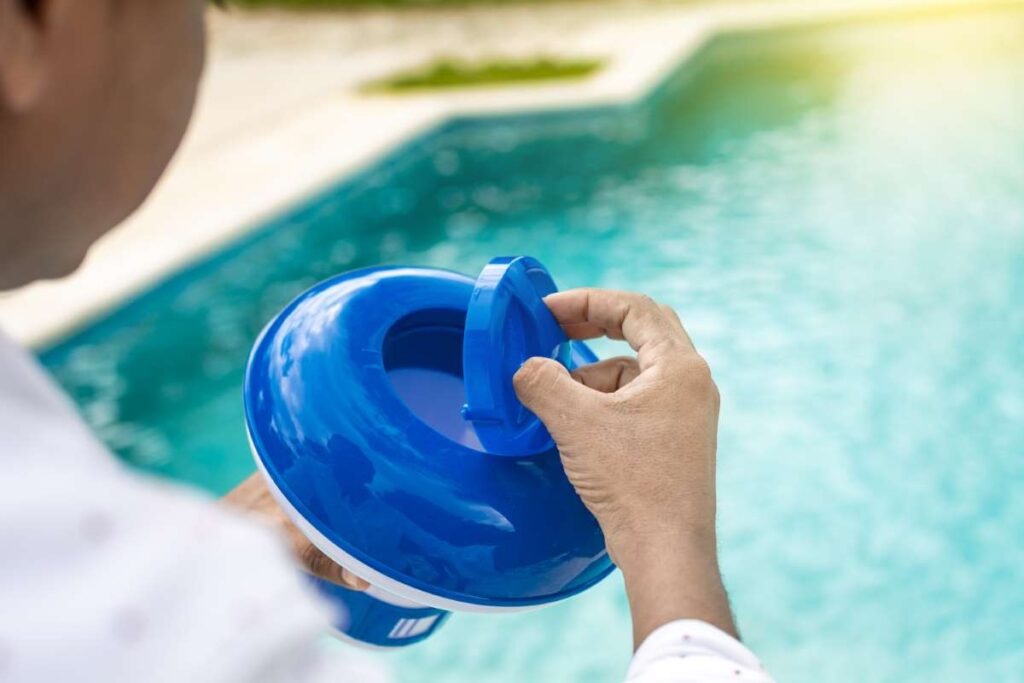Ensure your pool route business complies with all legal standards to operate smoothly and successfully in the competitive market.
Navigating the Legal Requirements for Your Pool Route Business
Starting a pool route business involves more than just managing accounts and servicing pools. Understanding and adhering to the legal requirements is crucial for long-term success and avoiding potential pitfalls. This comprehensive guide delves into the essential legal aspects you need to consider when launching and operating your pool route business.
Introduction
The pool maintenance industry offers lucrative opportunities for entrepreneurs looking to establish a steady and profitable business. A pool route business, in particular, can provide a consistent income stream by managing multiple pool accounts and ensuring their proper upkeep. However, like any business venture, it comes with its own set of legal requirements that must be meticulously addressed to ensure compliance and protect your investment.
Understanding the legal requirements for a pool route business is paramount. From obtaining the necessary licenses and permits to ensuring proper insurance coverage and adhering to employment laws, each aspect plays a critical role in the smooth operation of your business. This article explores the key legal considerations you need to navigate, providing you with the knowledge to build a compliant and successful pool route business.
Licensing and Permits
One of the foundational steps in establishing a pool route business is securing the appropriate licenses and permits. These legal requirements vary depending on your location, but they generally include:
Business License
A business license is a mandatory requirement for operating legally within a specific jurisdiction. It legitimizes your business and allows you to conduct operations within the city or county. To obtain a business license:
- Research Local Regulations: Different cities and counties have varying requirements. Visit your local government's website or office to understand the specific process.
- Complete Application Forms: Provide necessary information about your business, including the name, address, and nature of services offered.
- Pay Applicable Fees: Licensing fees can vary based on location and business size.
Contractor's License
If your pool route business involves performing any maintenance, repairs, or installations, you may need a contractor's license. This license ensures that you have the necessary skills and qualifications to perform the work safely and effectively.
- Educational Requirements: Some states require proof of education or training in pool maintenance or a related field.
- Experience: Demonstrating relevant work experience can be a prerequisite for obtaining a contractor's license.
- Examinations: You might need to pass a state-administered exam that tests your knowledge of pool maintenance and safety standards.
Environmental Permits
Pool maintenance can involve the use of chemicals and the disposal of wastewater, which are subject to environmental regulations. Ensuring compliance helps prevent environmental damage and avoids hefty fines.
- Chemical Handling Permits: Depending on the chemicals you use, you might need permits that regulate their storage, transportation, and usage.
- Wastewater Disposal Permits: Proper disposal of pool water and other waste products is essential to prevent contamination of local water sources.
Zoning Permits
If you're operating your pool route business from a specific location, such as a home office or a dedicated workspace, you may need zoning permits to ensure your business activities comply with local zoning laws.
- Check Zoning Laws: Verify whether your business activities are permitted in your chosen location.
- Apply for a Zoning Permit: Submit an application if your business operations require a special zoning permit.
Obtaining the necessary licenses and permits is a critical step in legitimizing your pool route business and ensuring compliance with local, state, and federal laws. For more information on acquiring the right licenses, consider exploring resources like Pool Routes For Sale provided by industry experts.
Insurance Requirements
Securing the right insurance coverage is vital for protecting your pool route business against potential risks and liabilities. Here are the key types of insurance you should consider:
General Liability Insurance
This insurance protects your business from claims related to bodily injury, property damage, and personal injury that may occur during your operations. For example, if a client slips on a wet pool area while you're performing maintenance, general liability insurance can cover the associated costs.
- Coverage Includes:
- Legal fees
- Medical expenses
- Settlement costs
Workers' Compensation Insurance
If you employ staff to assist with pool maintenance, workers' compensation insurance is typically required by law. It covers medical expenses and lost wages for employees who are injured on the job.
- Benefits:
- Protects employees in case of work-related injuries
- Shields your business from potential lawsuits related to workplace injuries
Property Insurance
Property insurance safeguards your business assets, including tools, equipment, and office space, against damage or loss due to events like fire, theft, or natural disasters.
- What’s Covered:
- Repair or replacement costs for damaged property
- Business interruption losses
Commercial Auto Insurance
If your pool route business relies on vehicles for transporting equipment and personnel, commercial auto insurance is essential. It covers accidents, damages, and liability related to business use of vehicles.
- Coverage Details:
- Vehicle damage
- Liability for injuries or property damage caused by your vehicles
Professional Liability Insurance
Also known as errors and omissions (E&O) insurance, this covers claims arising from mistakes or negligence in the services you provide. For instance, if improper pool maintenance leads to property damage, professional liability insurance can help cover the costs.
- Key Protections:
- Defense costs in legal proceedings
- Settlements or judgments against your business
Investing in comprehensive insurance coverage is a strategic move that protects your business from unforeseen circumstances. To ensure you have the right coverage, consult with insurance professionals and consider the specific needs of your pool route business. For more details on protecting your business, visit Pool Routes Warranty.
Employment Laws and Contractor Agreements
Navigating employment laws and establishing clear contractor agreements is essential for maintaining a compliant and efficient pool route business. Here are the critical aspects to consider:
Classification of Workers
Properly classifying your workers as either employees or independent contractors has significant legal implications.
- Employees: Subject to various labor laws, including minimum wage, overtime, and benefits.
- Independent Contractors: Typically handle their own taxes and are not covered by employee benefits or labor protections.
Misclassification can result in penalties and legal disputes. It's crucial to understand the criteria set by the IRS and state labor departments to determine the correct classification.
Employment Contracts
When hiring employees, providing clear employment contracts helps define the terms and conditions of their employment. These contracts should outline:
- Job Responsibilities: Detailed description of the role and duties.
- Compensation: Salary, wages, and any bonuses or incentives.
- Benefits: Information on health insurance, retirement plans, and other perks.
- Termination Conditions: Grounds for termination and notice periods.
Independent Contractor Agreements
For independent contractors, having a well-drafted agreement is essential to outline the scope of work, payment terms, and responsibilities. Key elements include:
- Project Scope: Specific tasks and deliverables expected from the contractor.
- Payment Terms: Agreed-upon rates and payment schedules.
- Confidentiality Clauses: Protection of sensitive business information.
- Termination Clauses: Conditions under which the agreement can be terminated.
Compliance with Labor Laws
Adhering to federal and state labor laws is non-negotiable. Key areas to focus on include:
- Minimum Wage Requirements: Ensuring all employees are paid at least the minimum wage as stipulated by law.
- Overtime Regulations: Properly compensating employees for overtime hours worked.
- Anti-Discrimination Laws: Preventing discrimination based on race, gender, age, disability, and other protected categories.
- Health and Safety Standards: Maintaining a safe work environment in compliance with OSHA regulations.
Training and Development
Providing adequate training ensures that your employees and contractors are well-equipped to perform their duties safely and effectively. This not only enhances service quality but also minimizes the risk of accidents and legal issues.
For a comprehensive understanding of managing employees and contractors, explore resources like Pool Routes Training offered by industry leaders.
Health and Safety Regulations
Maintaining high health and safety standards is crucial in the pool maintenance industry. Compliance with health and safety regulations not only protects your employees and clients but also enhances your business's reputation. Here are the primary considerations:
OSHA Standards
The Occupational Safety and Health Administration (OSHA) sets forth regulations to ensure safe working conditions. Key OSHA standards relevant to a pool route business include:
- Hazard Communication: Proper labeling and handling of pool chemicals.
- Personal Protective Equipment (PPE): Providing appropriate PPE such as gloves, goggles, and protective clothing to employees.
- Safe Equipment Operation: Training employees on the safe use of pool maintenance equipment to prevent accidents and injuries.
Chemical Safety
Pool maintenance involves the use of various chemicals, such as chlorine and algaecides, which can pose health risks if not handled correctly.
- Proper Storage: Store chemicals in secure, labeled containers away from unauthorized personnel.
- Safe Handling Practices: Train employees on safe mixing, handling, and disposal of pool chemicals to prevent accidents and environmental harm.
- Emergency Procedures: Establish protocols for dealing with chemical spills, exposures, and other emergencies.
Pool Safety Standards
Adhering to pool safety standards ensures the well-being of clients and the longevity of your business relationships.
- Regular Inspections: Conduct routine inspections of pools to identify and address safety hazards such as slippery surfaces, faulty equipment, and inadequate fencing.
- Water Quality Management: Maintain proper water chemistry to prevent health issues and equipment damage.
- Client Education: Educate clients on pool safety practices, including proper use of pool equipment and emergency procedures.
Employee Training Programs
Implementing comprehensive training programs equips your employees with the knowledge and skills necessary to maintain high safety standards.
- Initial Training: Provide thorough training for new hires on safety protocols, equipment use, and emergency response.
- Ongoing Training: Offer regular refresher courses to keep employees updated on the latest safety practices and regulatory changes.
- Certification Programs: Encourage or require certifications in pool maintenance and safety from recognized institutions.
Incident Reporting and Documentation
Establishing a robust incident reporting system helps track and address safety issues promptly.
- Report Procedures: Create clear guidelines for employees to report accidents, near-misses, and safety concerns.
- Documentation: Maintain detailed records of incidents, safety inspections, and corrective actions taken to demonstrate compliance during audits or inspections.
Adhering to health and safety regulations is not only a legal obligation but also a cornerstone of building trust and reliability with your clients. For more insights on maintaining safety standards, visit Pool Routes FAQ.
Conclusion
Launching and operating a pool route business presents a promising entrepreneurial opportunity, but it comes with a set of legal responsibilities that must be meticulously managed. From obtaining the necessary licenses and permits to securing comprehensive insurance coverage, adhering to employment laws, and maintaining stringent health and safety standards, each legal aspect plays a vital role in ensuring your business's success and longevity.
Non-compliance can lead to hefty fines, legal disputes, and damage to your reputation, underscoring the importance of a proactive approach to legal requirements. By thoroughly understanding and addressing these legal considerations, you not only protect your business but also build a solid foundation for growth and excellence in the pool maintenance industry.
Ready to take the next step in your pool route business journey? Explore Pool Routes For Sale to find the perfect route for your entrepreneurial aspirations, and leverage Superior Pool Routes' unmatched training and support to ensure your business thrives in a competitive market.



